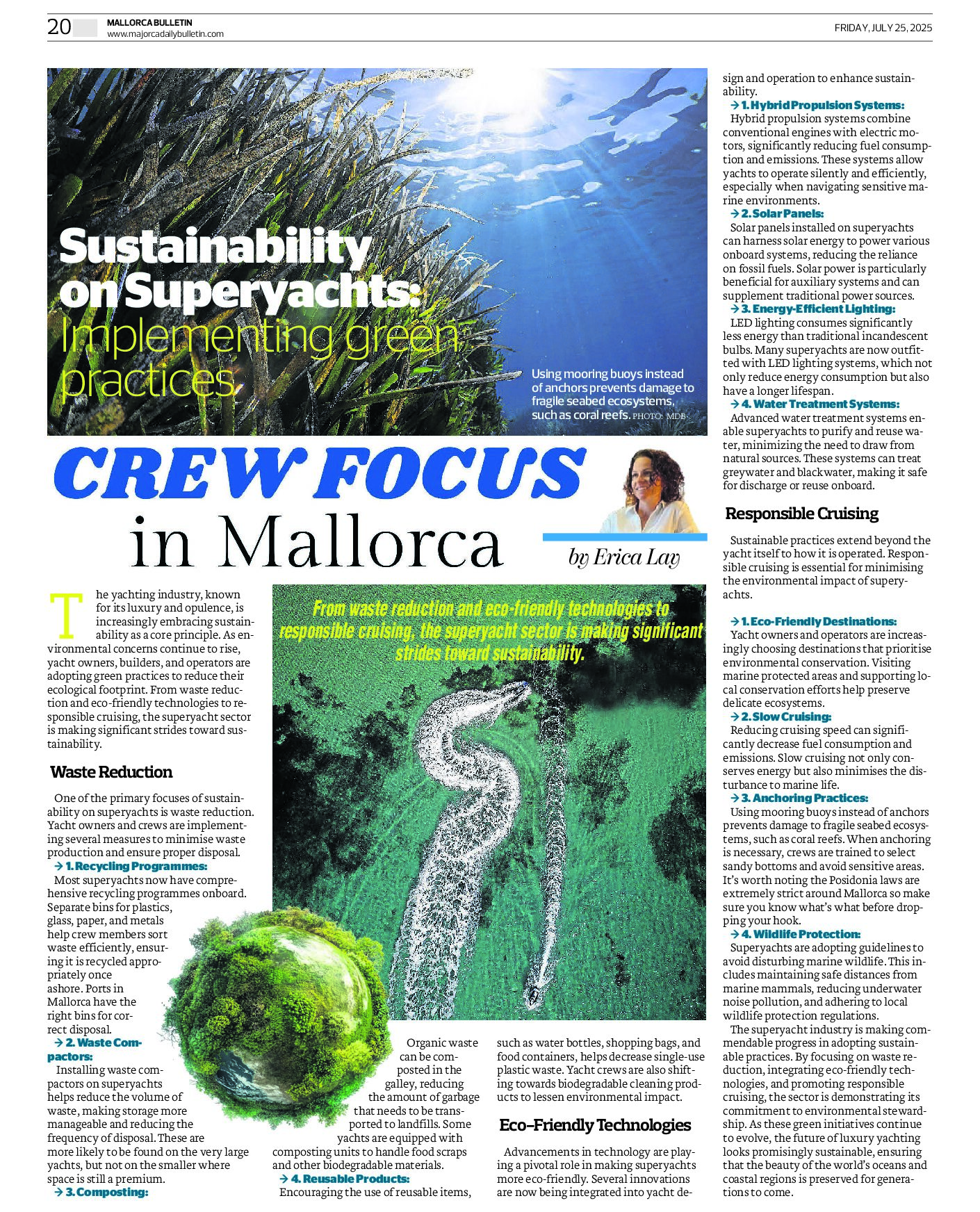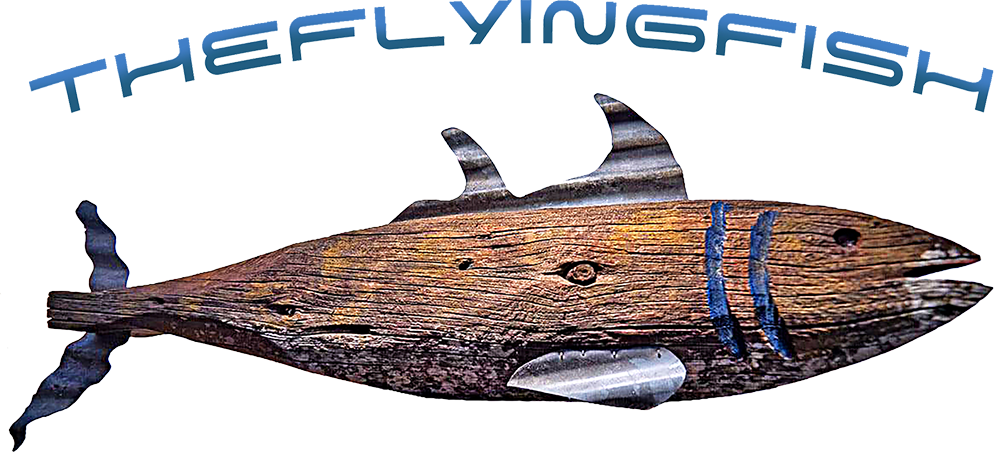Sustainability on Superyachts

With Courtesy of Erica Lay & The Mallorca Bulletin. #25/1056.
Erica Lay owner of EL CREW International Yacht Crew Agency http://www.elcrewco.com/ erica@elcrewco.com
Sustainability on Superyachts: Implementing Green Practices
The yachting industry, long synonymous with luxury and indulgence, is increasingly embracing sustainability as a core value. As environmental awareness rises, yacht owners, builders, and operators are taking meaningful steps to reduce their ecological footprint. From cutting waste and adopting eco-friendly technologies to promoting responsible cruising, the superyacht sector is making real strides toward a greener future.
Waste Reduction
One of the primary pillars of superyacht sustainability is effective waste management. Yacht crews are now expected to minimise waste at every stage and ensure proper disposal both at sea and ashore.
1. Recycling Programs
Most modern superyachts now operate comprehensive recycling systems onboard. Separate bins for plastics, glass, paper, and metals help crews sort waste efficiently, ensuring it is handled appropriately upon reaching port. Marinas across the Balearics, especially in Mallorca, are well equipped with bins for proper disposal.
2. Waste Compactors
Larger yachts often install waste compactors to reduce the volume of onboard rubbish. This not only makes storage more manageable but also decreases the frequency of offloading waste. Smaller yachts, where space remains a premium, are less likely to feature these systems.
3. Composting
Some yachts are now equipped with composting units to process food waste and other biodegradable materials, reducing landfill contributions and providing a more sustainable alternative for organic refuse.
4. Reusable and Biodegradable Products
A growing number of crews are switching to reusable water bottles, shopping bags, and storage containers. Alongside this shift is the adoption of biodegradable cleaning products and toiletries, helping reduce the release of harmful chemicals into the marine environment.
Eco-Friendly Technologies
Technology is playing a critical role in pushing the superyacht industry toward a lower-impact future. Many new builds—and refits—are incorporating systems that reduce energy use and emissions.
1. Hybrid Propulsion Systems
Hybrid systems that combine diesel engines with electric motors are becoming more common. These systems offer quieter, cleaner cruising, especially in environmentally sensitive areas, and dramatically reduce overall fuel use.
2. Solar Panels
Solar panels are being fitted to supplement power for auxiliary systems like lighting and electronics. While not yet powerful enough to run the whole vessel, they offer a clean energy boost and reduce reliance on fossil fuels.
3. LED Lighting
LED systems consume less energy and last longer than traditional incandescent bulbs. Most superyachts are now outfitted with LED lighting throughout, reducing both energy demand and maintenance.
4. Advanced Water Treatment Systems
Modern superyachts often include systems to purify and reuse water. These technologies treat greywater and blackwater onboard, allowing for safe discharge or reuse and reducing the need to draw from natural sources.
Responsible Cruising
Sustainability extends beyond the yacht itself to how and where it is used. Owners and crews are adopting cruising practices that minimise their environmental impact.
1. Eco-Friendly Destinations
Charter itineraries now increasingly favour locations that prioritise environmental protection. Visiting marine reserves and supporting local eco-projects can directly benefit fragile ecosystems.
2. Slow Cruising
Reducing cruising speed cuts fuel consumption and carbon emissions. It also lessens underwater noise pollution and limits disturbance to marine life—a win-win for planet and performance.
3. Anchoring with Care
Dropping anchor can cause irreparable damage to the seabed. Crews are now trained to use mooring buoys where available or anchor only in sandy areas to avoid harming sensitive environments like seagrass meadows. Around Mallorca, awareness of Posidonia seagrass is vital—violations can lead to significant fines, so knowing local laws is essential.
4. Marine Wildlife Protection
Yachts are implementing procedures to avoid disturbing marine wildlife. These include observing legal distance zones from marine mammals, reducing engine noise, and respecting wildlife protection laws in different regions.
A Greener Future for Yachting
The superyacht sector is taking significant and commendable steps toward sustainability. With smarter waste strategies, advanced green technologies, and more conscious cruising habits, the industry is evolving to meet today’s environmental challenges.
These initiatives not only help protect the world’s oceans and coastlines but also redefine what luxury means at sea. The future of yachting is no longer just about elegance—it’s about responsibility, innovation, and preservation.
